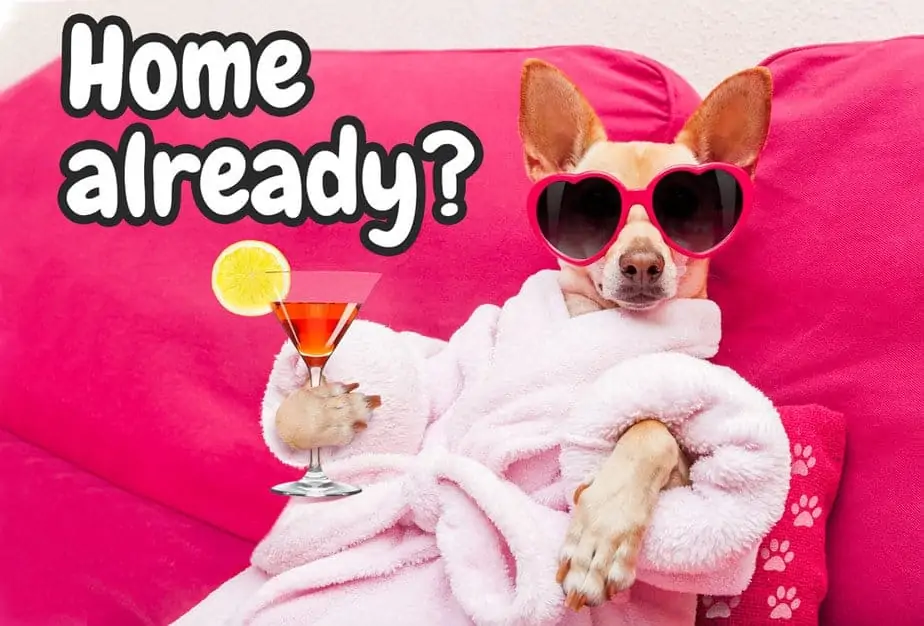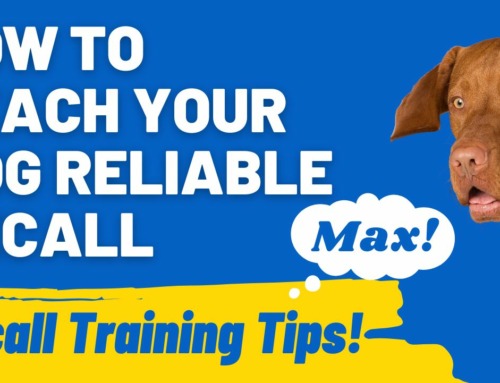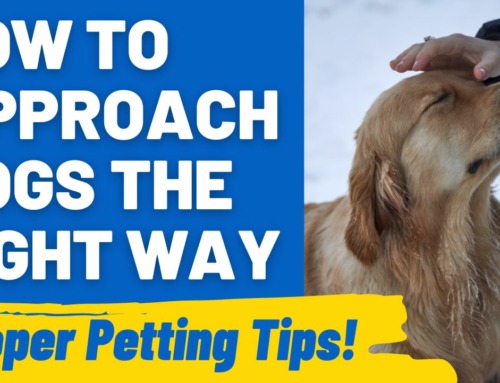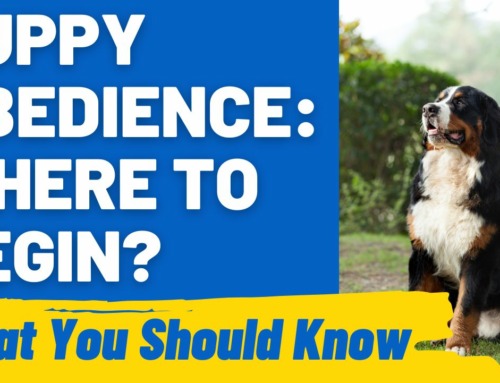A dog greeting you at the door is one of the quintessential ideals of dog ownership. After a long day at work, a welcome from your dog that says “I’ve missed you so much. You’re my world!” is simply beautiful and is no doubt a stress reliever we all need.
Unfortunately for some dog owners, while this may be their ideal situation, it may not be their reality. We’ll be looking at reasons dogs do (or don’t) greet their owners when they come home, as well as ways you can find that special moment with your dog if it’s something you’re looking for in your owner-dog relationship.
Does my dog dislike me?
Just because your dog doesn’t greet you when you come home, absolutely doesn’t mean that your dog doesn’t like you. Whether or not a dog greets you at the door depends on many factors, including their individual personality, their training history, and their environment.
In fact, many dog owners wish that their dogs would greet them less enthusiastically! Especially when you come through the door with your hands full and are in need of a desperate wee!
Not all dogs show their love and affection for their owners by greeting them at the door when they return home. Plus, with the wide variety of dog breeds (and individual dogs) in the world, there’s also a wide range of enthusiasm for affection in dogs.
Just like people, all dogs have different personalities.
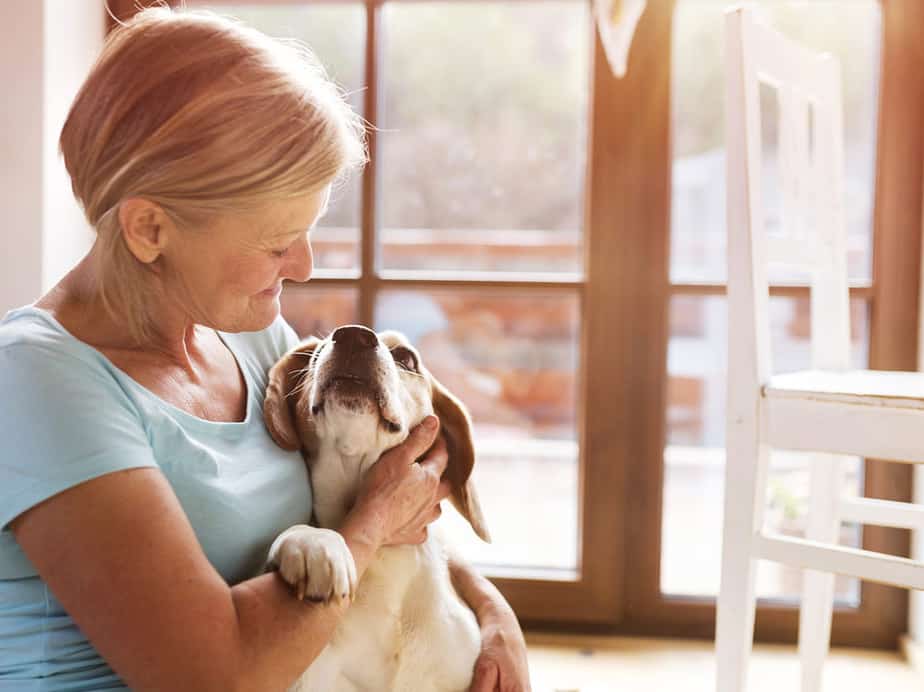
Breeds that are less likely to greet you at the door
You can get an idea if your dog’s breed is playing a role in their behavior by talking to other owners of the breed, and looking at the breed standard.
If it describes your dog’s breed as independent, aloof, unaffectionate, or in other similar terms, it’s likely that it’s not in your dog’s nature to be as excited about your arrival home as some other breeds.
Here is a list of less affectionate dog breeds:
- Chow Chow
- Afghan Hound
- Basenji
- Beagle
- Cairn Terrier
- Shar-Pei
- Alaskan Malamute
- Berger Picard
- Akita
- Tibetan Mastiff
- Siberian Husky
Age is a factor
Your dog’s age can also play a role in this situation. While most puppies are excited to greet their owners, a socially mature dog may develop more of an aloof and independent personality.
If your dog is elderly, you may also find that they don’t greet you simply due to a lack of hearing. As dogs age, many of them lose their hearing, and they might not have noticed your arrival home.
Some elderly dogs also suffer from diseases such as canine cognitive dysfunction, where they aren’t always as aware of their surroundings or in the same mindset as they used to be.
If you notice signs of canine cognitive dysfunction in your dog, you can always consider a visit to their veterinarian to see if there are any treatments that may help.
If not greeting you at the door is the only concern you have in your relationship with your dog, it’s unlikely to be because your dog dislikes you.
Why doesn’t my dog greet me at the door?
If not greeting you at the door is a new behavior, and you haven’t been specifically training your dog to give less enthusiastic greetings, you should always consider a veterinary exam.
A dog that suddenly goes from greeting their owner when they arrive home, to not greeting their owner at all, may indicate that they aren’t feeling well. This lethargy and lack of interest can be a symptom of a wide variety of ailments.
However, if the behavior is new but your dog seems happy, healthy, and active otherwise, they may be avoiding greeting you at the door because of a past experience.
Accidental training
Dogs are always learning, whether or not we are training them in a formal training session. For most dogs, this learning consists of figuring out what’s safe and not safe in their world.
While it sometimes takes multiple negative experiences to effect behavior change in a dog, they can also experience single event learning.
If, in the past, you’ve scolded your dog as you walked through the door, they may now associate you coming home with a potential and impending uncomfortable situation.
This may be because you scolded them for a mess you saw, or because they were jumping on you, or for a variety of other reasons.
In addition to a history of scolding your dog when you come home, your dog might have experienced a negative situation that you did not intend to cause when you walked through the doorway.
You might have walked in with a large amount of bags, or a scary object. It also might be the case that as you arrived home, a noise (such as fireworks, or a siren) was happening at the same time.
No matter the initial negative experience, your dog’s behavior is likely to tell you if this is why they’ve changed their behavior.
Unlike a dog that is fully relaxed, sleeping on the couch and greeting you from afar with a soft wag, a dog that is avoiding greeting their owner due to a negative past will usually display different behavior.
You may notice subtle signs of stress, such as:
- yawning
- rolling to the side
- licking their lips
- turning their head away from you as you approach
In some cases, you might even see more obvious signs of stress and anxiety, such as your dog leaving the room.
If you’ve determined that your dog is avoiding greeting you at the door because of a negative past experience, you can work to undo that experience so that coming home isn’t a stressful experience for your dog.
Here is more information on fear anxiety.
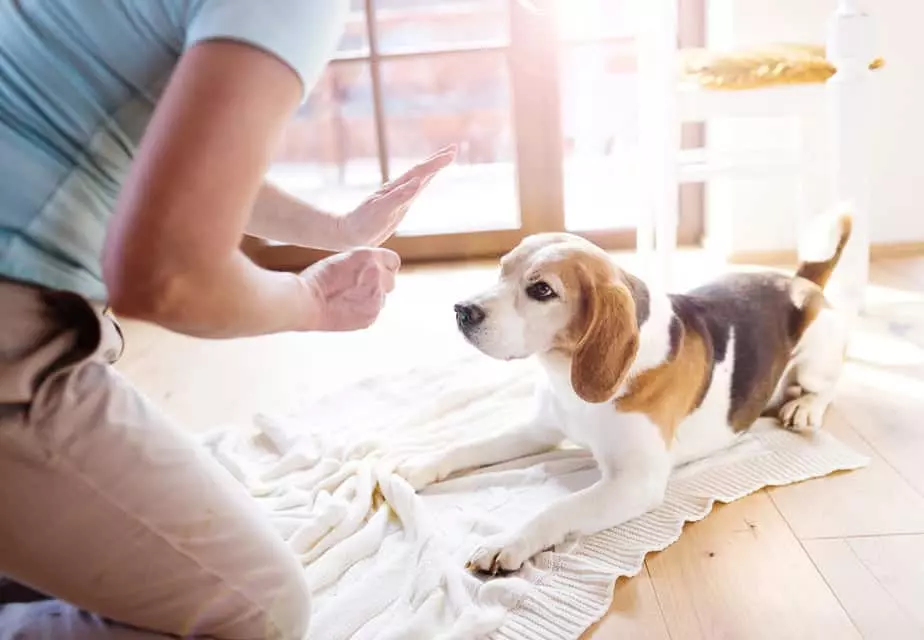
How to encourage your dog to greet you when you arrive home
When your dog is avoiding you because of a past negative experience associated with your arrival home, or simply because their breed and individual personality have predisposed them to being more aloof, you can engage your dog in a new routine to encourage them to greet you when you arrive home.
For dogs that are worried about greeting their owner, this process is called counter-conditioning, as we are taking a negative experience and turning it into a positive one.
In this process, we are simply teaching an indifferent dog that there’s good stuff in it for them if they come greet you at the door.
There’s one very important thing to keep in mind, though – especially if your dog started avoiding you because you were punishing them when you arrived home for something that happened when you were gone.
If you want your dog to greet you at the door, you cannot punish your dog when you arrive home in future encounters.
For one, punishment is often not the kindest or most effective form of behavior change. Plus, dog’s don’t know what they’re being punished for unless it happens in the moment.
Scolding your dog for the garbage on the floor, when that garbage has probably been there for a few hours at this point, won’t teach your dog to avoid digging in the garbage again in the future.
Instead, your dog is simply likely to learn that you are upset when there is garbage on the floor, and will react negatively when in your presence when garbage is also on the floor.
This reaction, where a dog is worried and offering appeasement signals, is what many owners consider to be a guilty dog. However, the dog that acts guilty is often not the culprit, and simply knows that their owner is about to be upset from past experiences.
Are you interested in reading this: Going on Vacation: Will my dog think I abandoned them?
What you should be doing to encourage door welcomes
Moving on to what you should be doing when you arrive home, you’ll want to consider what your dog loves best.
For some dogs, that’s going to be the opportunity for a walk.
For others, they might love sitting on the floor with their owner for some physical affection, or getting a special treat.
Once you’ve determined what your dog loves, add that to your home arrival routine.
Consider hanging a treat bag by the door and giving them one when you get home.
As you get home, instead of putting away what you’ve brought back with you and going about the rest of your day, add in the step of engaging your dog in their favorite activity.
Even spending a few minutes petting them and telling them you missed them can be enough to have them waiting for you at the door with expectant joy!
Dogs thrive on patterns and routines, so once they realize that your arrival home means it’s time for a walk (or other reward), you’re likely going to see some additional excitement when you arrive home in anticipation!

